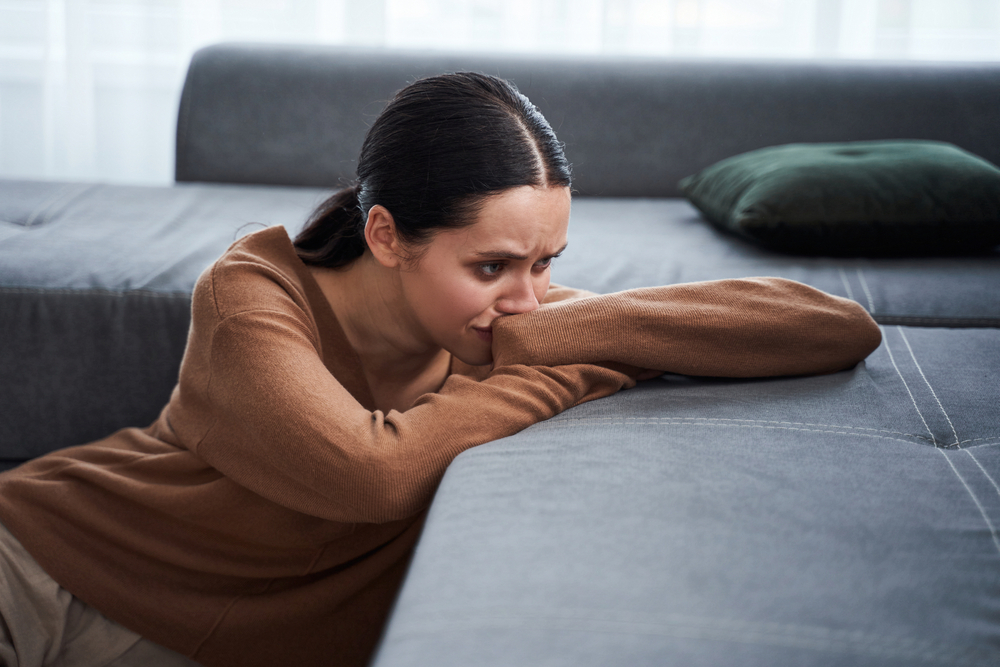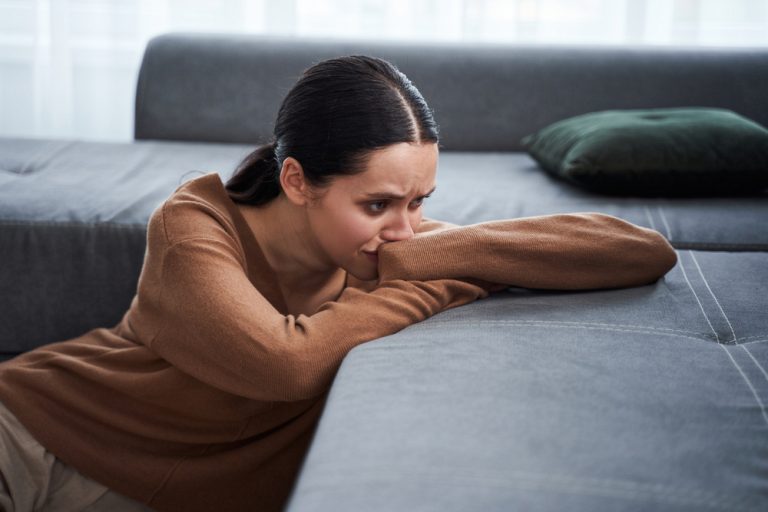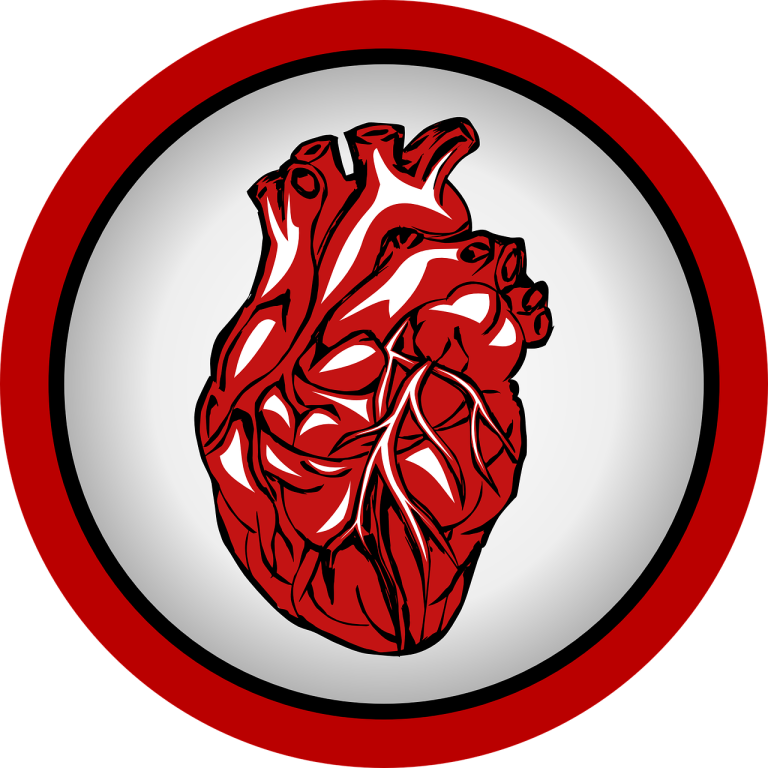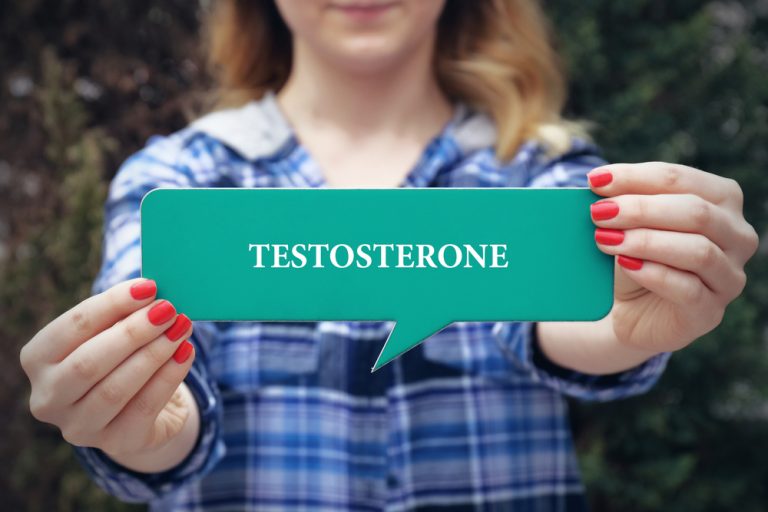Mood change is a common menopausal symptom.
At the time of perimenopause, levels of estrogen initially fluctuate with daily variation, before falling so low that periods stop. After 1 year of no periods, women are then classified as post-menopausal. As there are estrogen receptors on cells throughout the body, all parts of the body can be affected by the change in estrogen levels. This causes widespread menopausal symptoms including effects on the brain such as mood changes, poor memory, poor cognition, mental fog and poor temperature regulation.
The average age of menopause in the UK is 51 years old but it is common for menopausal symptoms to begin 3-4 years prior to periods stopping, in the perimenopause. Often this coincides with a change in pattern of periods, but this can also begin whilst women are still having regular periods.
In my clinical practice I commonly encounter women who experience an increase in anxiety, panic attacks, mood swings, tearfulness and the development of low mood in the menopause. They describe feelings such as loss of confidence, inability to make decisions, reduced ability to cope with stress, anger and insecurity. Sometimes these symptoms not only have a negative impact upon the woman herself, but also on her family, friends and her work.
Women who have hot flushes often tend to have a greater degree of mood changes. Women who have previously had hormone related depression, e.g. postnatal depression or premenstrual syndrome, have an increased risk of developing perimenopausal low mood too.
We know that Hormone Replacement Therapy (HRT) is the most effective treatment for all menopausal symptoms, including low mood which arises as part of the menopause. Unfortunately, there is often poor recognition of mood changes associated with menopause by health professionals, and women can be inappropriately diagnosed with depression and then given antidepressants instead of HRT.
There is evidence that antidepressants may help to some extent with hot flushes and anxiety in the menopause but do not improve low mood in women who are not clinically depressed, but instead have low mood due to menopause. Antidepressants are associated with an increased risk of bone thinning, heart disease and gut side effects if taken for long periods, and they can also worsen libido. In contrast, benefits of HRT beyond symptomatic relief, are reduced risks of both heart disease and osteoporosis if started in women below the age of 60 or within 10 years of menopause.
The use of body identical estrogen transdermally (through the skin) and body identical progesterone appears to be the safest combination of HRT. Some women benefit from the addition of testosterone too, which has been shown to have a positive effect in some women on mood, energy levels and libido.
Women who have severe depression, however, should be treated with an antidepressant, rather than HRT alone. But there is also evidence that HRT can enhance the effect of the antidepressants in menopausal women and make them more effective. In mild or moderate depressive symptoms associated with menopause, if women do not improve adequately with HRT, then antidepressants can be added in addition.
There will be some instances when it would not be appropriate to prescribe HRT e.g. in a woman with a hormone-dependent breast cancer and in these cases, antidepressants might be recommended instead.
Additional treatment options for depressive symptoms in menopause include cognitive behavioural therapy and lifestyle measures such as adequate sleep, regular physical activity and relaxation exercises.





